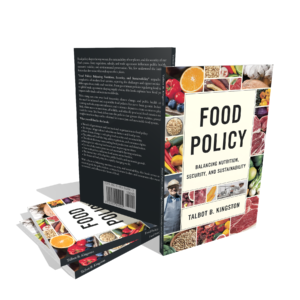Food Policy: Balancing Nutrition, Security, and Sustainability – Complete Guide to Modern Food Systems

Food policy shapes every meal you eat, yet most people remain unaware of its profound impact on nutrition security and environmental sustainability. If you’ve ever wondered why healthy foods cost more than processed alternatives, or how government decisions affect your local farmers’ market, this comprehensive guide provides the answers you need. “Food Policy: Balancing Nutrition, Security, and Sustainability” breaks down complex food systems into actionable insights, showing you how agricultural policies, trade regulations, and sustainability initiatives directly influence your daily food choices and community health.
This essential ebook reveals the interconnected web of food policy decisions that determine food security, nutrition access, and environmental impact across global communities. Unlike academic textbooks that focus solely on theory, this practical guide empowers readers to understand and advocate for meaningful policy changes that promote food justice and sustainable agricultural practices.
What You’ll Discover
- Food Systems Fundamentals: Master the complex relationships between agricultural policies, nutrition security, and sustainable farming practices that shape modern food systems
- Policy Impact Analysis: Learn how government subsidies, trade agreements, and food regulations directly affect food prices, availability, and nutritional quality in your community
- Sustainability Solutions: Discover evidence-based strategies for promoting environmentally responsible agriculture while maintaining food security and economic viability
- Food Justice Advocacy: Overcome barriers to equitable food access by understanding how to advocate for policies that support local farmers and reduce nutritional disparities
- Global Trade Understanding: Navigate the complexities of international food trade and its effects on local food systems, farmer livelihoods, and consumer choices
- Community Engagement Strategies: Transform your knowledge into action with practical approaches for supporting sustainable food initiatives and influencing local food policy decisions
Why This Book Matters
Food policy affects every aspect of your daily life, from the price of groceries to the environmental impact of your meals. This comprehensive guide transforms complex policy discussions into practical knowledge you can use to make informed food choices and advocate for positive change. Whether you’re concerned about nutrition security, environmental sustainability, or supporting local agriculture, understanding food policy is essential for creating meaningful impact in your community.
The book addresses critical issues like food deserts, agricultural subsidies, and climate change impacts on food systems while providing actionable strategies for promoting food justice and sustainable practices. By connecting policy decisions to real-world outcomes, readers gain the tools needed to engage effectively with local policymakers and support initiatives that strengthen food security for all communities.
Key Features
This comprehensive ebook spans multiple chapters covering food systems analysis, policy reform strategies, sustainability practices, and community engagement techniques. Available as an instant digital download, you’ll receive immediate access to detailed policy breakdowns, practical advocacy guides, and actionable implementation strategies. The format allows for easy reading on any device, with printable resources for community organizing and policy analysis. Also available as audiobook on Google Play Books and Spotify for convenient listening during commutes or while preparing meals.
Frequently Asked Questions
How does food policy affect everyday food choices and nutrition security?
Food policy directly influences food prices, availability, and nutritional quality through agricultural subsidies, trade regulations, and food safety standards. These policies determine which foods receive government support, affecting their market prices and accessibility to different communities, ultimately shaping nutrition security outcomes.
What practical steps can individuals take to support sustainable food systems?
Supporting local farmers’ markets, advocating for policy reforms, participating in community gardens, and making informed consumer choices all contribute to sustainable food systems. This book provides specific strategies for engaging with local policymakers and supporting initiatives that promote both sustainability and food security.
Is this book suitable for beginners without policy background?
Absolutely. The book translates complex food policy concepts into accessible language with practical examples and real-world applications. Whether you’re a concerned consumer or community advocate, the content is designed to build understanding progressively while providing actionable insights for immediate implementation.
Get Your Copy Today
Transform your understanding of food systems with this comprehensive guide to food policy, nutrition security, and sustainability. Available for instant download at just $6.99, this ebook provides exceptional value compared to expensive policy courses or sustainability workshops. Also available as audiobook on Google Play Books and Spotify for convenient listening during daily activities. Purchase your copy through all major ebook retailers including Apple Books, Barnes & Noble, and Kobo to begin advocating for meaningful food system reform today.
Watch the Video Review

